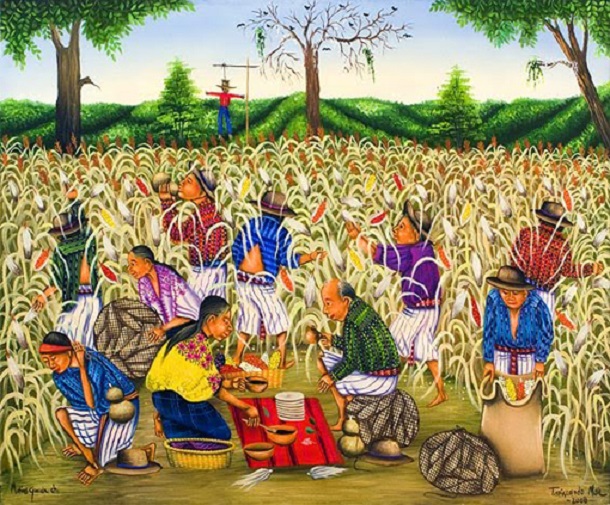On September 29, 2023, Mexico will celebrate its National Maize Day, a day to honor the ancient and vital crop that has shaped the country’s culture, cuisine, and history.
Maize, also known as corn, is a large grain plant that was first domesticated by Indigenous peoples in Mexico about 10,000 years ago. Since then, maize has become a staple food and a symbol of identity for millions of Mexicans, especially the campesinos/ (small farmers) who still grow native varieties of maize using traditional methods.
However, maize is also under threat from various factors, such as the importation of genetically modified (GM) corn from the U.S., the loss of biodiversity and soil fertility, the effects of climate change, and the lack of support for small-scale agriculture.
According to some estimates, Mexico now imports one-third of its corn consumption, mostly from the U.S. This situation not only affects the food sovereignty and security of the country but also exposes the native maize to the risk of contamination by GM corn.

Various organizations and movements have been working to raise awareness and mobilize action among farmers, consumers, and policymakers to protect the sacred plant and its diversity. One of these groups is Seeds of Life (Semillas de Vida), a group that promotes agro-biodiversity and the conservation of native maize. The group supports farm- ers in creating corn reserves, where they can store and exchange their seeds, as well as share information on the risks of GM corn. Another initiative is Without Corn, There Is No Country (Sin Maíz, No Hay País), a coalition that advocates for food sovereignty and the defense of maize as a cultural heritage.
On National Maize Day, these groups and others will organize various activities across the country to celebrate and educate about the importance of maize. There will be demonstrations, marches, expo- sitions, workshops, festivals, and more.

National Maize Day aims to show the richness and beauty of maize in its different colors, shapes, and flavors and highlight the traditional knowledge and practices that have preserved it for millennia.
As Adelita San Vicente Tello, director of Seeds of Life, once said: “This is really where the alternative lies for the food production model, especially when faced with the problem of climate change”.
CLICK HERE TO READ THE FULL ARTICLE ON OUR WEEKLY GAZETTE
TYT Newsroom


